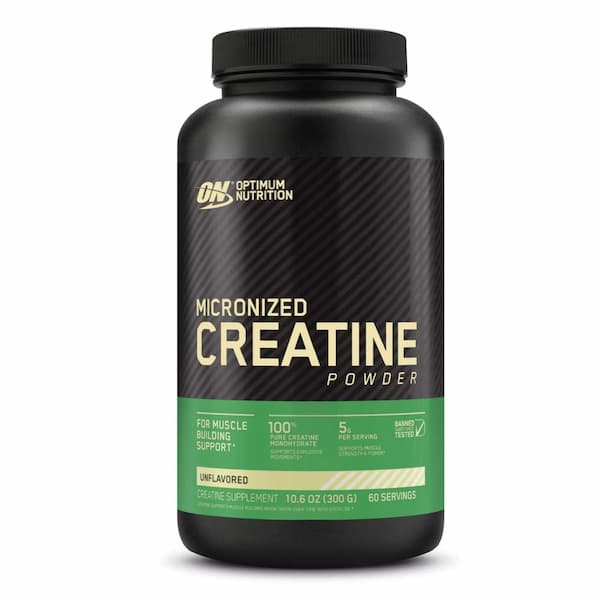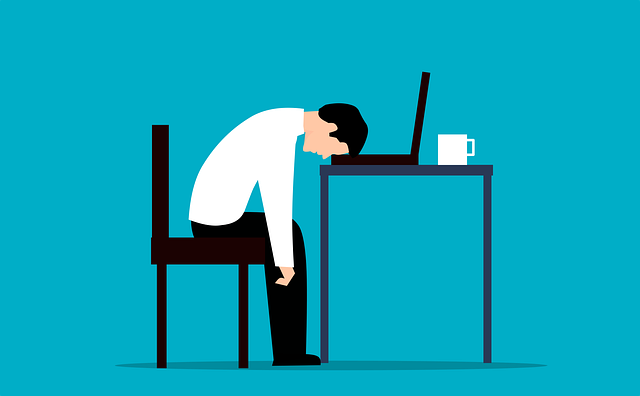Can You Take Creatine Before Bed? Is It Bad?

You can take creatine before going to bed. Creatine might make you sleep better. We are aware that sleep promotes brain healing and that creatine improves the mitochondrial health of the brain. There is no evidence to suggest that taking creatine before the night is harmful; it is made naturally in the body, included in our regular diets, and taken as a supplement.
But, why do we take creatine? When is the best time to take creatine? How to take creatine? Does creatine have any benefits or disadvantages? Don’t worry, I will answer all the questions in the following post, Please read on.
Table of Contents
What Is Creatine?
Cleveland Clinic describes creatine as a natural source of energy in the body for muscle contraction. It can aid in exercise performance and recovery and is produced — at a rate of one gram per day — within the body, namely, in the liver, kidneys and pancreas.
Consuming meat or seafood will provide you with it if you follow a healthy diet. According to Huntington’s Outreach Project For Education at Stanford (Despite being stored in skeletal muscles (where 95 percent of it is, according to HOPES), creatine is distributed throughout the body in organs like the heart and brain. After that, it is broken down while exercising.
Although they can supplement their diets with creatine, vegetarians typically have low levels of creatine since meat is a major source of the substance. It would be difficult for the body to maintain normal levels of creatine without additional creatine from a daily diet. Although studies on creatine and its supplementation have been conducted, many things remain unknowable about its effects.
The right dosage may vary depending on your age and whether you’re using creatine for athletic purposes. MedlinePlus recommends that those experiencing age-related muscle loss take a loading dose of 20 grams of creatine for four to seven days, then maintenance doses of two to 10 grams daily, combined with resistance training.

Why Do We Take Creatine?
First, we’ll briefly discuss who should take creatine and why it’s good for us. One of the most extensively studied supplements available is creatine, which has been shown to increase the amount of ATP—our body’s energy—that can be used for strenuous and prolonged exercise. This means that it may enable you to complete the final rep or the final few seconds of a sprint more quickly.
Although you won’t notice the strength and muscle-building advantages right away, being able to complete an extra rep per set will have a compounding effect that you’ll notice as your muscle mass increases. The most advantages of creatine will be experienced by anyone who is trying to get stronger during workouts that last less than 60 seconds (such as weightlifting, sprinting, and most sports). Other supplements, like beta-alanine, will be more beneficial for endurance exercises lasting longer than 60 seconds. This amino acid is a naturally occurring one that is better suited for people who engage in long-term endurance exercise.
Creatine may improve mental performance (i.e. boosting memory, cognitive ability and neural connections).
Read about: Is It Safe To Sleep With A Tampon In All Night?
When Is The Best Time To Take Creatine?
We must first consider your specific objectives before discussing the ideal time to take creatine.
Ideally, you should take creatine before working out if you’re an athlete, trying to gain muscle, or just want to perform better in the gym.
Your muscles will be “preloaded” with creatine if you consume it about 30 minutes before hitting the gym, which will improve muscular contractions and allow you to perform more repetitions. Additionally, you’ll experience hyper-increased cellular hydration, which can support longer training sessions.
There is also the unproven theory that you can “feed” your muscles while they are working out by taking creatine with your BCAAs or pre-workout. It makes sense that you could create a better anabolic environment by giving your trained muscles nutrients like creatine or bcaas since blood is already rushing to them.
The best time to take creatine is 30 minutes before a workout. When your muscles are growing and recovering after an exercise session, it’s also a good idea to add it to your recovery shake or post-workout meal.

How To Take Creatine?
To quickly saturate your muscles, you can take a loading phase of 20 grams per day for a week, divided into 4 x 5 gram servings. However, some research suggests that a loading phase isn’t necessary and that simply taking the maintenance dosage daily will have the desired effect.
The maintenance dose is approximately 5 grams per day for everyone, whether you decide to do a loading phase or not. Days off and training days are included here. Some people also opt to cycle their creatine supplementation, taking it for six weeks before taking a break for six. However, there isn’t any solid proof that doing this is essential for getting the best outcomes.
It should come as no surprise that there are various forms of creatine available given that it is a heavily studied dietary supplement. Creatine Monohydrate is the most well-known of these, but other varieties are also now readily available and offer extra advantages. These include Kre-Alkalyn, Creatine Gluconate, Creatine Ethyl Ester. These more recent versions have advancements like better absorption and lessened bloating and cramping, which can occasionally happen. You can choose the supplement that best fits your unique needs thanks to the variety of creatine products available.
Creatine Benefits And Disadvantages
The advantages of creatine include enhancing general exercise performance, reducing the likelihood of injury or its severity, assisting with post-exercise recovery, and enabling athletes to endure challenging training loads.
Another study found that people who take creatine supplements have less cramping, dehydration, muscle tightness, and muscle strains. Additionally, research suggests that taking creatine supplements may be therapeutic for conditions like Parkinson’s and Huntington’s disease.
HOPES claims that there are very few side effects. Despite the paucity of research on the effects of creatine supplementation, there have been some reports of renal dysfunction as a result. Cleveland Clinic notes that a side effect of water retention in the body’s muscles could be weight gain.
Despite the paucity of negative effects, you should consider consulting your doctor before taking creatine supplements, especially if you’re taking other supplements or medicines that may trigger an adverse reaction.

FAQs
Creatine Before Or After Workout
Research suggests that taking creatine after a workout is most optimal. When combined with a resistance training program, it works better for boosting lean muscle mass. It might even be more advantageous if you take it along with a high-carb or high-carb/high-protein post-workout meal.
Can You Take Creatine Before Workout?
There are three primary options when it comes to taking creatine on days that you work out. You can take it shortly before you exercise, shortly after you exercise, or at some time that isn’t close to when you exercise. Another choice is to divide your daily dosage and spread it out throughout the day.
Can You Take Creatine Without Working Out?
So, you can definitely take creatine if you don’t go to the gym or if you’re not trying to get ‘big’. The main advantages for people who don’t exercise are that creatine will give you an energy boost for any daily activity and will enhance brain function.
Can You Take Creatine on An Empty Stomach?
Do You Need to Eat Before Taking Creatine? Generally speaking, we recommend that you take creatine on an empty stomach, based on the evidence we’ve seen from research studies and with clients. The primary factor is that when your stomach is empty, creatine may be absorbed much more quickly.
Does Taking Creatine Before Bed Has Any Benefits?
Creatine supplements are beneficial at any time of the day, including right before bed. It is not a problem to take creatine before bed because it is not a stimulant.
Can Taking Creatine Before Bed Helps Our Brains Recover Quicker?
According to the research we have on creatine and sleep, athletes who lack sleep may benefit from taking creatine because it will lessen the negative effects of their lack of sleep.
However, for one night, it might be helpful. You shouldn’t rely on creatine to make up for lost sleep.
How Much Should I Take Creatine?
To keep the muscles’ saturation levels high, it’s typical to take a daily dose of 5 grams of creatine.
How Should I Consume Creatine?
It has been discovered that the absorption of creatine is maximized when it is taken with fast-acting carbohydrates like maltodextrin and dextrose.
Conclusion
There should be no reason for you to worry excessively about timing it because there is no conclusive evidence to support the claim that taking creatine before bed would damage your ability to fall asleep.
Just be sure to follow the dosage instructions exactly to prevent any side effects and to reap the maximum advantages of this product.
The most crucial thing to keep in mind is that creatine is only a supplement.
Your results will still mostly depend on your general lifestyle and eating habits, so be sure to pay attention to those as well. It may help you have more energy, endurance, and muscular growth.





















